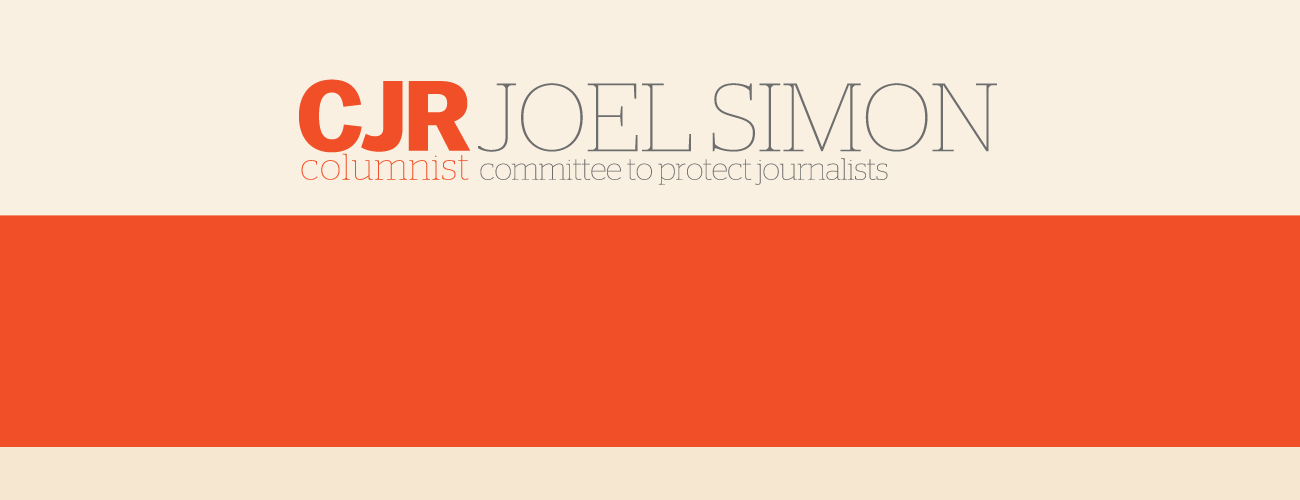Sign up for the daily CJR newsletter.
Journalism matters because people around the world need timely news and analysis to make informed decisions about their lives.
This is a maxim that drives the work of many reporters. At the Committee to Protect Journalists, it’s why we advocate for the rights of persecuted journalists working in repressive and dangerous environments.
But the assumption that timely news leads to informed decisions is being challenged not only by the shocking Trump victory, but also by the Brexit vote and the recent referendum that rejected a peace deal in Colombia.
In all three instances, the media failed to anticipate the dynamic of the vote and failed to reflect to the full range of views. But the widely expressed opinion that the media failed to provide critical coverage is not justified. If there was a kink in the system it was not the coverage, but the delivery system.
Related: Journalism’s moment of reckoning has arrived.
Let me make this point through an analogy. A trial usually consists two competing legal arguments, both grounded in facts, otherwise known as evidence. What if technology suddenly allowed 50 different lawyers to present competing narratives to the jury? And what if evidence requirements were eliminated, such that some of the lawyers presented their arguments based on traditional evidentiary standards, while others felt liberated to make things up. Would we blame the jury members if they were unable to render an informed verdict?
This is the world we live in today. There are no longer common narratives that unite large segments of the population. Facebook and to a lesser extent Twitter have segmented and fractured the media, and a good deal of the information that comes through feeds is tendentious and false, according to an analysis by Nieman Lab director Joshua Benton.
The notion of balance–so meticulously tracked by the Shorenstein Center–is quaint. People don’t read web sites, much less newspapers. Instead, they get their news through social media feeds. The Washington Post or The New York Times may be perfectly balanced in terms of their coverage of each candidate, but such efforts make no difference when readers are more likely to access individual stories affirming their political biases through their Facebook feeds.
The same reality exists in many parts of the world. In Colombia, for example, the establishment dailies El Tiempo and El Espectador have been eclipsed by a more complex, diverse, and fragmented media, that operates largely online and is amplified through local radio. At a global level, propaganda networks like Russia Today are part of the mix, as are unfiltered dumps of stolen data.
Of course, there are many, many benefits to our current media environment. There is more news and information available more easily than at any time in human history. But there are downsides as well. Not only is it impossible to analyze and process the information, but trying to do so produces collective stress. Scientists studying human behavior artificially create high-stress situations by bombarding their subjects with information. This environment is now replicated in our daily lives.
Related: Facebook can no longer be ‘I didn’t do it’ boy of global media
In the aftermath of the Trump victory, there is a lot of finger pointing going on. There is plenty to criticize in the media’s coverage of Trump, including its uncritical amplification of Trump’s message, at least initially. But there was also plenty of investigative and accountability journalism that presented a complete and critical picture of Trump as a candidate. But power of each individual media outlet is much diminished, so this kind of journalism has considerably less impact.
What this all means is that journalism’s maxim–that we do what we do in the belief that informed societies make informed decisions–is harder to demonstrate. As the editors in news site Mic (which targets millennials) wrote in a note to their staff, “[We] have spent every waking moment of the past five years working toward the mission of informing, inspiring and empowering our generation to change the world … We failed.”
Still, journalists must continue to believe that by doing our jobs as journalists–and by the defending the rights of journalists who work in conditions of extraordinary risk–we make a positive contribution. In other words, we must do all we can to make sure truth is out there, even if it’s harder and harder to find.
Has America ever needed a media defender more than now? Help us by joining CJR today.







